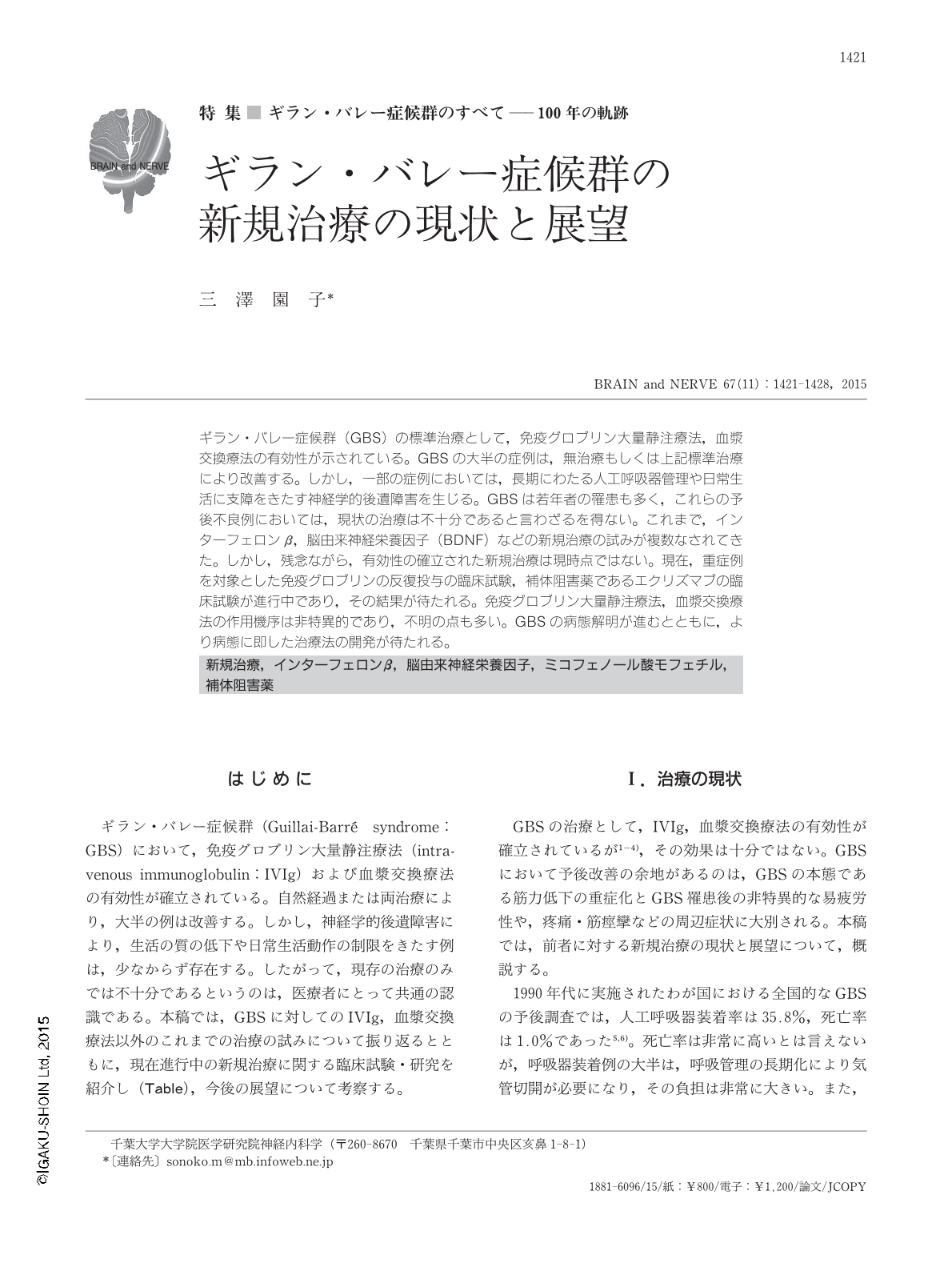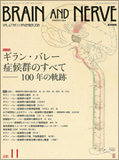Japanese
English
- 有料閲覧
- Abstract 文献概要
- 1ページ目 Look Inside
- 参考文献 Reference
ギラン・バレー症候群(GBS)の標準治療として,免疫グロブリン大量静注療法,血漿交換療法の有効性が示されている。GBSの大半の症例は,無治療もしくは上記標準治療により改善する。しかし,一部の症例においては,長期にわたる人工呼吸器管理や日常生活に支障をきたす神経学的後遺障害を生じる。GBSは若年者の罹患も多く,これらの予後不良例においては,現状の治療は不十分であると言わざるを得ない。これまで,インターフェロンβ,脳由来神経栄養因子(BDNF)などの新規治療の試みが複数なされてきた。しかし,残念ながら,有効性の確立された新規治療は現時点ではない。現在,重症例を対象とした免疫グロブリンの反復投与の臨床試験,補体阻害薬であるエクリズマブの臨床試験が進行中であり,その結果が待たれる。免疫グロブリン大量静注療法,血漿交換療法の作用機序は非特異的であり,不明の点も多い。GBSの病態解明が進むとともに,より病態に即した治療法の開発が待たれる。
Abstract
Intravenous immunoglobulin (IVIg) and plasma exchange (PE) are of proven efficacy and are considered the standard therapy for Guillain Barré syndrome (GBS). However, some patients require artificial ventilation during the acute phase and experience long-lasting neurological deficits or symptoms. Currently, there is no established therapeutic intervention for GBS other than IVIg and PE, even though a number of compounds have been investigated. Clinical trials to investigate the efficacy and safety of a second IVIg or eculizumab are ongoing. Increased understanding of the pathophysiology of GBS is expected to contribute to the development of a novel therapeutic approach.

Copyright © 2015, Igaku-Shoin Ltd. All rights reserved.


